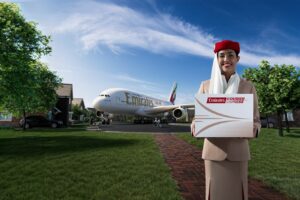
Q1. What are your thoughts on the rise of free zones throughout the UAE? What do you think this will mean for business start ups?
A1.The UAE is emerging as the new frontier for entrepreneurship. It is located in the heart of the world’s largest emerging markets, a gateway to existing and emerging trade routes, and the 45 freezones – and counting – are providing an added draw for businesses, particularly international ones. The freezone initiative demonstrates a strong commitment and strategic effort from the UAE government to nurture new businesses and business growth as well as putting the infrastructure in place for alternative business activities and potential income opportunities – expanding into new areas and diversifying away from its dependency on oil trade.
In particular, it makes it easier for start-ups – both local and international – as there’s a huge amount of flexibility and several hurdles are alleviated for business owners so it allows them to hit the business ground running. Many freezones cater to specific industries – i.e. healthcare – or business types – i.e. start-up, SME or international trade – and many seize the opportunity to find complimentary partners or tap into resources and business incubation within these hubs with mentorship and facilities to develop prototypes and content for instance. The UAE’s appeal as a global commercial hub is only strengthening and the number of start-ups is increasing, stimulating the investment landscape too. Numbers show the UAE raised $699 million in the first half of 2022, securing its reign as the leading country for VC financing in MENA. Such milestones are testament to a well-built environment and accompanying this a high quality of life, which is successfully attracting skilled, future-ready talent.
Q2. How do you think UAE based businesses can benefit off the current financial climate? What would your advice be to anyone trying to navigate this situation?
A2. The UAE is notoriously resilient, maintaining resilience during the COVID pandemic and even now while other countries teeter on the edge of a recession. Ride the wave and take advantage of the ecosystem the UAE has created. It’s never been easier to experiment and businesses should use this opportunity to do so, turning ambiguity into opportunity, that’s how businesses like Netflix and Airbnb were born. Never freeze and rest on your laurels or you’ll get left behind. If you’re cautious then share the load, find smart ways to collaborate to manage risk. UAE based businesses who trade internationally need to recognise that their consumers out of the UAE might be tightening their purse strings given the uncertain times they might be facing, so you should be thinking about new offers that better connect with that audience and whether you need to innovate your business model.
Q3. What do you hope to see at this year’s WETEX 2022 conference?
A3.If we think about the key trends and priorities in the sustainability and clean energy area, it all hinges on tech. Technology is our planet’s best hope and plays a crucial role in the transformation of businesses in this sector. No question, there is the need to be increasing innovation and investment in the clean energy sector and using technology to repair our planet. The next unicorn from the region will likely be in smart tech and focused on this environment.
Q4. E-commerce is massively trending across business news, how do you think businesses can adapt to new methods of business online?
A4.Succeeding online today isn’t simply about making a digital product or service, it’s about finding the right business model that is native as well. A business model is the backbone of how a company creates, delivers and captures value. When a company innovates on just the product, service or customer experience without considering the underlying business model, it not only reduces the value that can be delivered to customers but also fails to realise the full value that can be captured by the business. Over time, that reduces the business’s ability to invest in creating experiences that will power the business of tomorrow. Business model innovation needs to be a key focus, it enables and sustains incremental improvements and disruptive paradigm shifts in market.
Q5. What top three pieces of advice would you offer to UAE businesses who are looking to expand across the region and throughout the world?
A5. I think it’s about activating on a solid growth strategy that answers two initial daunting questions: Where can you play to win? And how can you win there in a differentiated and relevant way? And from there requires you drilling down around four key steps:
- Intelligent segmentation and targeting – you need a deep understanding of each of your customers in each of your regions and what makes them tick and how to find the best – and new – ways to meet their needs.
- Unique value proposition – what makes your offer different from competitors in these markets, don’t gloss over this step. Define the core benefits of your offer to break through the clutter.
- Go-to-market strategy – will likely require operational shifts. It takes careful alignment of distribution, marketing and messaging to maximise success, particularly when reaching different customers, like a newly defined target.
- Define the ‘why’ with purpose and ESG – ESG is a powerful way to create value and often a missed opportunity. It leads to meaningful and sustainable engagement with multiple stakeholders. ESG and purpose must act together to create value, a golden thread across the organisation.
Q6. What benefits do you think businesses outside of the UAE can gain by setting up outposts within the country?
A6.This question talks to some points that I referenced earlier but ultimately the UAE is financially very powerful and setting up a business in the country is easier than ever, largely due to the freezones, particularly for international companies setting up in the UAE. The country has a strong infrastructure and offers a good quality of life that attracts skilled talent.
This event already took place, 27-29 September












